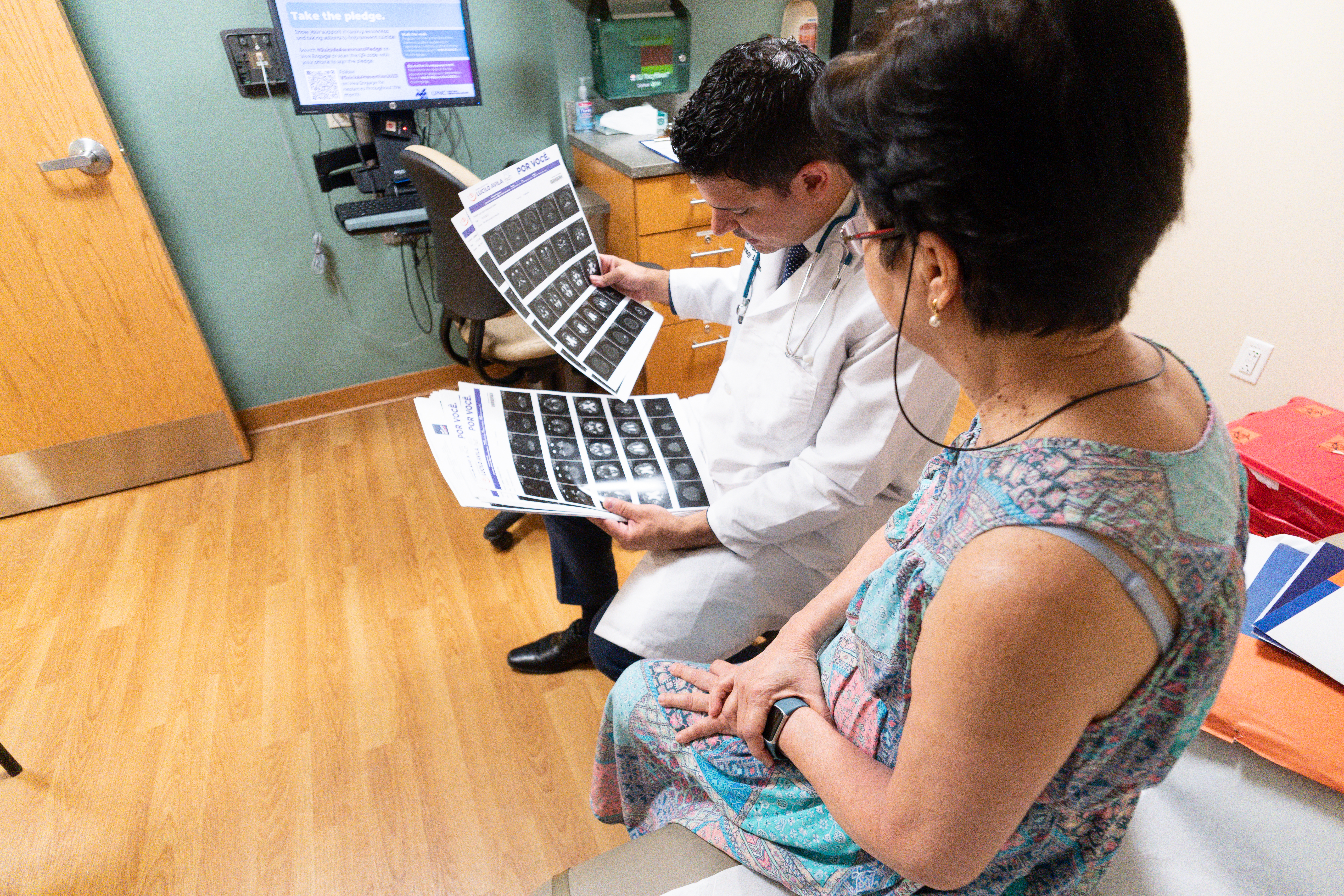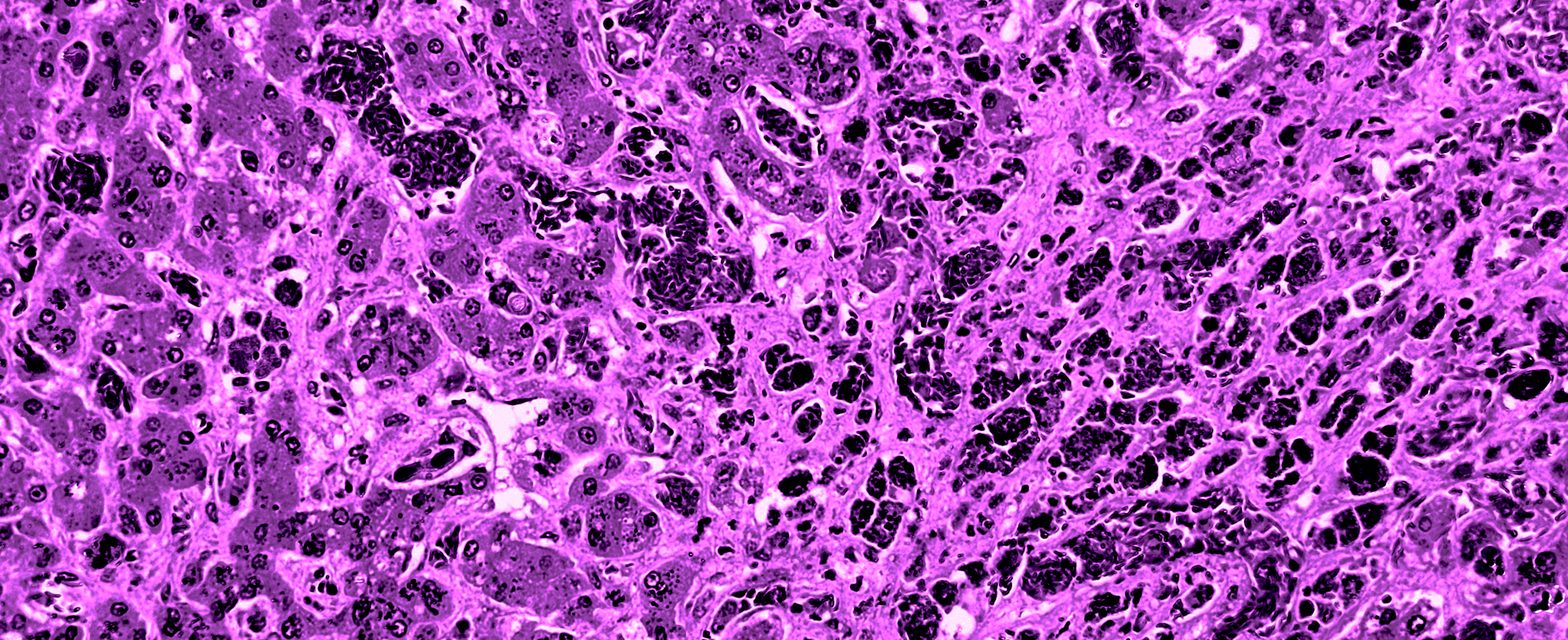
One day a week, when he’s not conducting research on Alzheimer’s disease in his Oakland lab, Dr. Tharick Pascoal treats patients at the memory clinic at UPMC. Sometimes what he observes is startling – a man who was fairly coherent six months ago staring back at him blankly, lost in the fog of the dreaded disease.
“The patient is getting worse and worse,” says Pascoal, a neurologist and associate professor of psychiatry and neurology at the University of Pittsburgh School of Medicine. “You can imagine that there are millions in the United States getting worse and worse. You want to help them. That’s what leads to my sense of urgency – I want to do everything fast.”
That urgency has resulted in groundbreaking findings on why some people whose brains are filled with amyloid plaques, or protein aggregates, develop Alzheimer’s, while most patients with these plaques don’t.
The answer his team found was in a star-shaped brain cell called astrocytes. His research, reported in Nature Medicine, suggests that Alzheimer’s occurs when the astrocyte, which is key to normal neurological function, becomes “reactive” in response to an immune attack. “We showed a simple blood test could identify those patients,” he says. The discovery also could help lead to new drugs to slow down the progressive deterioration of the brain.
Pascoal, a 40-year-old recruited to UPMC in 2020, has benefited from a culture and space for novel dementia research created in part through funding from The Pittsburgh Foundation. In 2014, it established at Pitt two Levidow-Pittsburgh Foundation Chairs in Alzheimer's Disease and Dementia Disorders, contributing $1.4 million, with an additional $2.6 million for research from the late David J. Levidow, a lawyer whose mother died of Alzheimer’s. Interest from those funds can be used for a variety of projects at the discretion of the professor named to the chair.
Dr. William E. Klunk, distinguished professor emeritus of psychiatry and neurology at Pitt, was named to the neurology chair. Dr. Victor Villemagne, professor of psychiatry at Pitt, has been designated as Klunk’s successor to that chair. Dr. Oscar L. Lopez, director of the Alzheimer’s Disease Research Center and professor at the University of Pittsburgh School of Medicine, was named to the one in psychiatry. Lopez said the endowed chair funds have been critical for expediting preliminary research that leads to National Institutes of Health (NIH) grants.
“The most important thing we have done with the funds is provide scientific stability,” says Lopez, who also is chief of the Cognitive and Behavioral Neurology Division at Pitt. “It provides a very smooth transition from creativity and an idea to the actual NIH-funded project. It makes life much easier for people with good ideas.”
Pascoal is among those young researchers with good ideas. As Lopez puts it, “He’s one of the few scientists in the world moving forward in the field of blood biomarkers and imaging.”
A native of Brazil, Pascoal has wanted to make a difference in the lives of Alzheimer’s patients since the days of his residency at a hospital in southern Brazil. He was struck by how patients with epilepsy, diabetes and other diseases received treatment while Alzheimer’s patients were ignored. The thinking back then was that there was nothing anyone could do to help them. With the help of post-doctoral students that Pascoal recruited from around the world, he is determined to change hopelessness to hope as a growing aging population is hobbled by Alzheimer’s.
In a separate but related award, the Pittsburgh Foundation established in 2023 the Endowed Chair in Geriatric Medicine Research. Dr. David Nace, the chief medical officer of UPMC Senior Communities and a geriatric medicine specialist, was the first professor awarded that seat. The University of Pittsburgh generated $1.3 million to fund it, with The Pittsburgh Foundation contributing $700,000. That position will have crossover with the Alzheimer’s endowed chair but will address issues of aging more broadly, says Michael Yonas, vice president for Community Partnerships and Learning at the Pittsburgh Foundation.
“It’s meant to be a sort of uber chair, bringing together not just cognitive neuroscience work but also holistic living across the schools of medicine and health sciences,” Yonas says. The hope is that these investments will generate giant leaps forward in intervention research, treatments and clearing the fog of Alzheimer’s.



